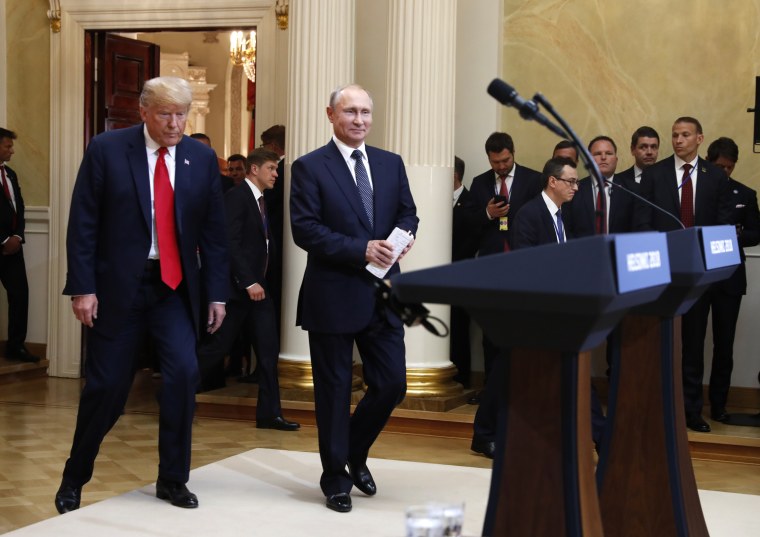Donald Trump's position on the U.S. military commitment in Afghanistan has grown increasingly muddled in recent weeks. For example, NBC News reported two weeks ago that the White House has "ordered the Pentagon to draw up plans for a troop withdrawal from Afghanistan." Just nine days later, a spokesman for the National Security Council said largely the opposite.
What will the president's policy be a week from now? Your guess is as good as mine.
But in case Trump's perspective weren't quite confusing enough, at a cabinet meeting yesterday, he decided to go on an extended riff on his understanding of Soviet foreign policy in Afghanistan in the late 1970s. From the transcript:
"Russia used to be the Soviet Union. Afghanistan made it Russia because they went bankrupt fighting in Afghanistan, Russia.... The reason Russia was in Afghanistan was because terrorists were going into Russia, they were right to be there. The problem is it was a tough fight and literally they went bankrupt. They went into being called Russia again as opposed to the Soviet Union. You know a lot of these places you are reading about now are no longer a part of Russia because of Afghanistan."
As a matter of history, the Republican president's version of events was deeply odd. A Washington Post analysis described Trump's rhetoric "bizarre," and the New Yorker's Susan Glasser added, "That sound you hear is historians, everywhere, weeping."
As a matter of politics, the USSR's invasion of Afghanistan 40 years ago was broadly condemned by the American mainstream and the West. The idea that a Republican president would say that the Soviets "were right to be there" is even more outlandish than a Republican president endorsing single-payer health care and massive tax increases on millionaires.
But there's one angle to this that lingered in my mind: where, exactly, did Trump get this bogus history lesson?
Rachel noted on the show last night, "Somebody has apparently given President Trump the old Soviet Union talking points on why that invasion was an awesome idea. And so, President Trump decided to wheel out those Soviet era talking points for the cameras in front of his somewhat bewildered cabinet today."
It sure would be nice to know who played the role of history teacher for the confused American president.
Maybe Trump just made it up, which is possible given his over-active imagination and his capacity for concocting all kinds of strange beliefs, though the level of specificity suggests someone actually told him a story.
It seems unlikely Trump read it somewhere, since he's not much of a reader, and it's implausible to think he'd deliberately brush up on Middle East history from the 1970s. It seems even less likely that he heard this from someone on his staff, since the president's aides generally don't encourage him to believe Soviet propaganda. He probably didn't get this from conservative media, since Fox News doesn't devote much airtime to covering Soviet foreign policy from the Carter era.
So who put this nonsense in Trump's head? The Washington Post's Glenn Kessler asked, "Is it possible that Trump's remarks on Afghanistan ... reflect a conversation he had with Putin?"
That need not be a rhetorical question.
Postscript: Jon Chait added yesterday, "Meanwhile, the Russian government is moving an official resolution defending the Soviet invasion of Afghanistan. (The approval is scheduled to take place next month.) Russians have previously called the invasion a tragic error, but Vladimir Putin’s regime — which regards the collapse of the Soviet Union as a world-historical tragedy — is systematically rehabilitating various Soviet crimes."
